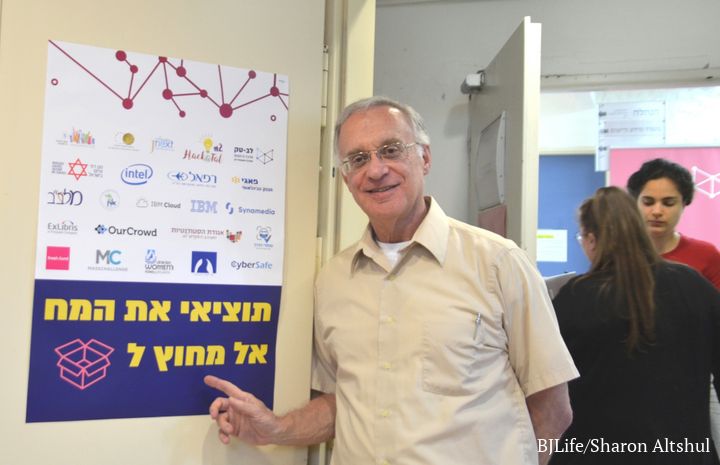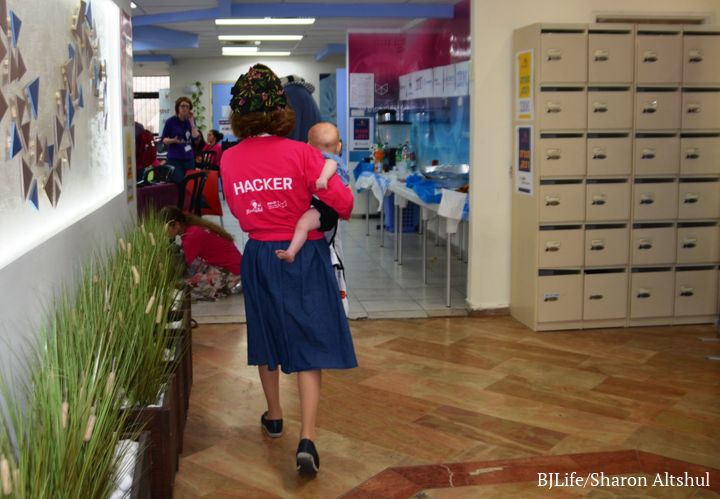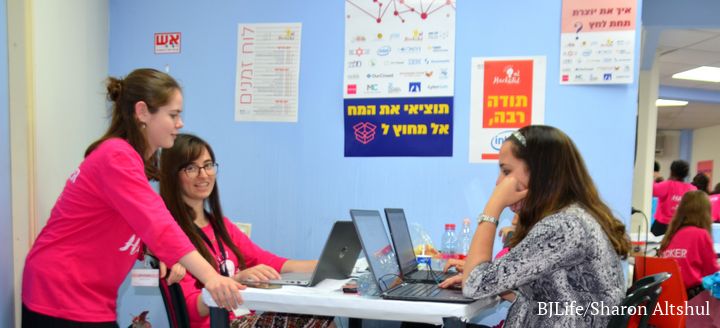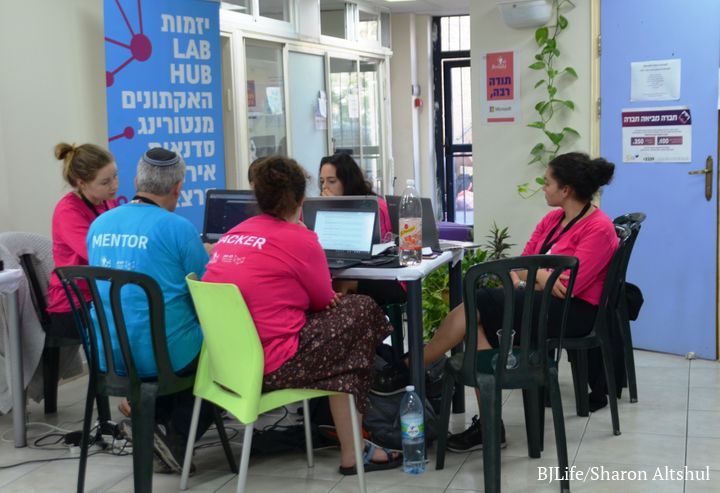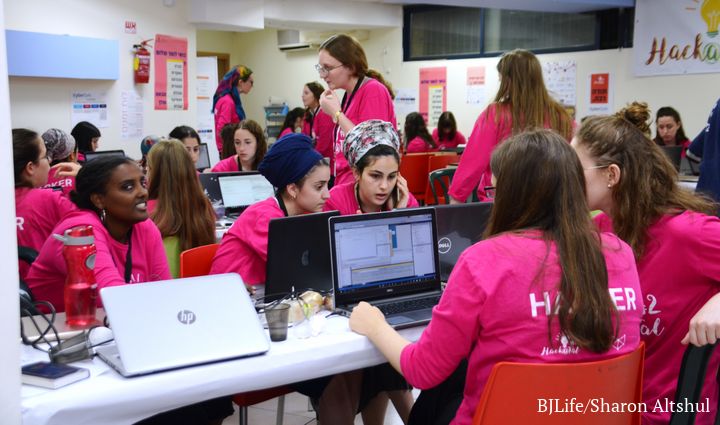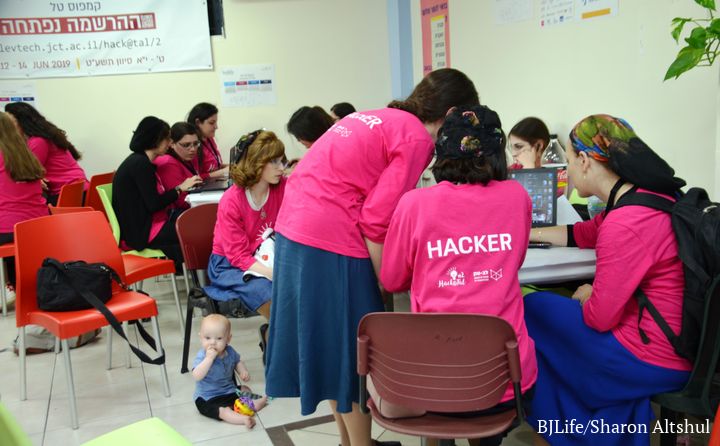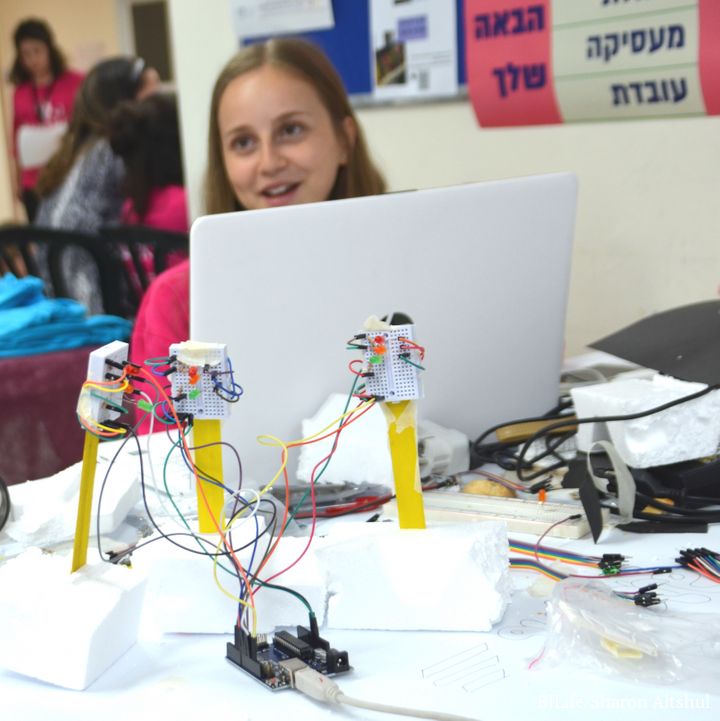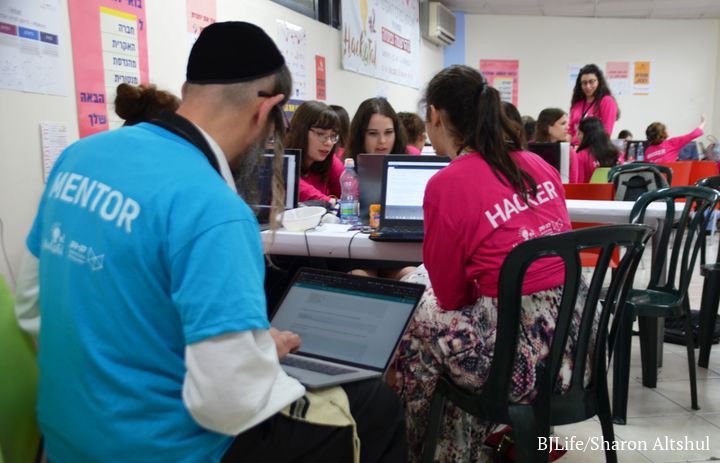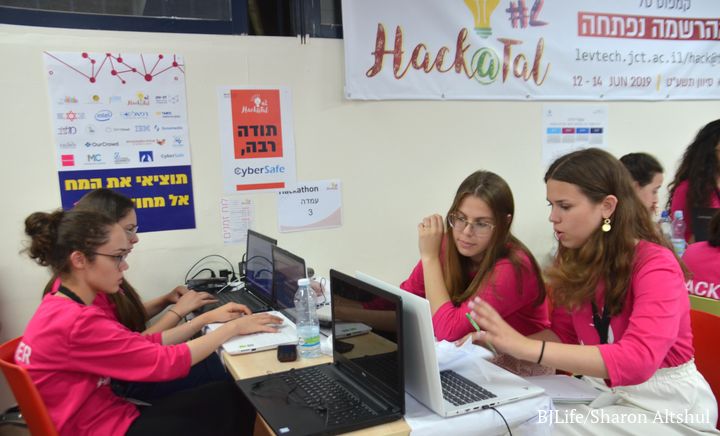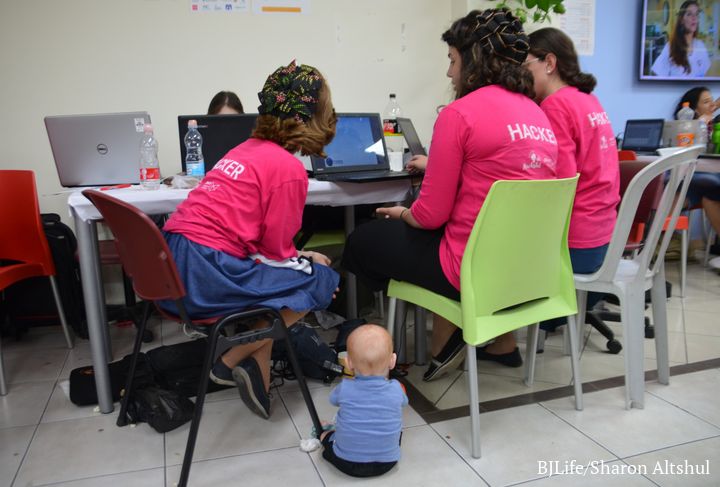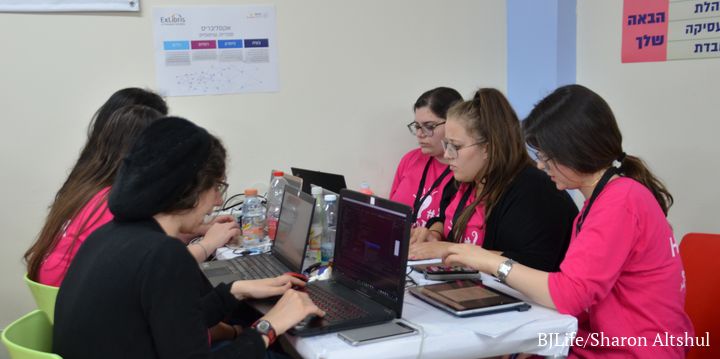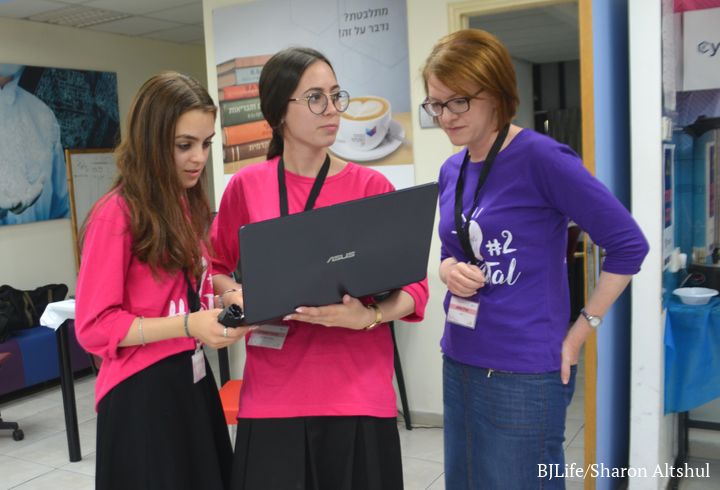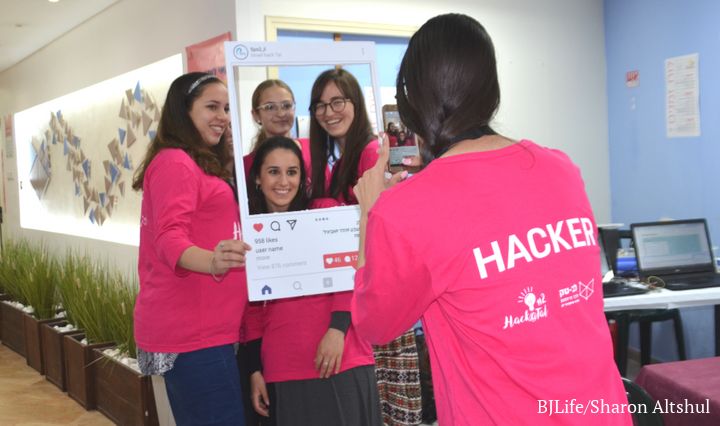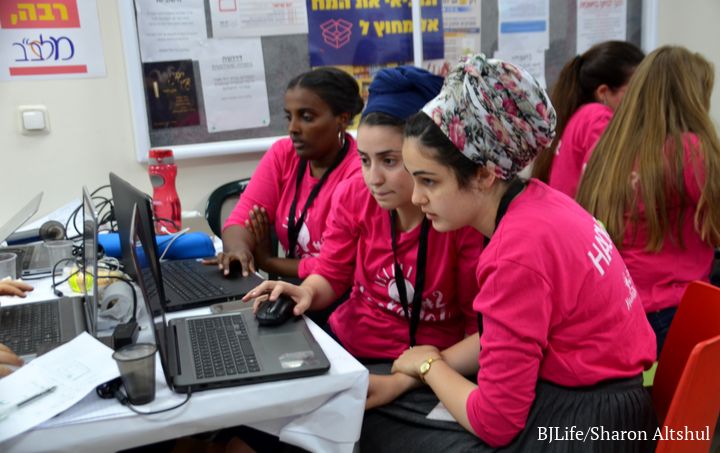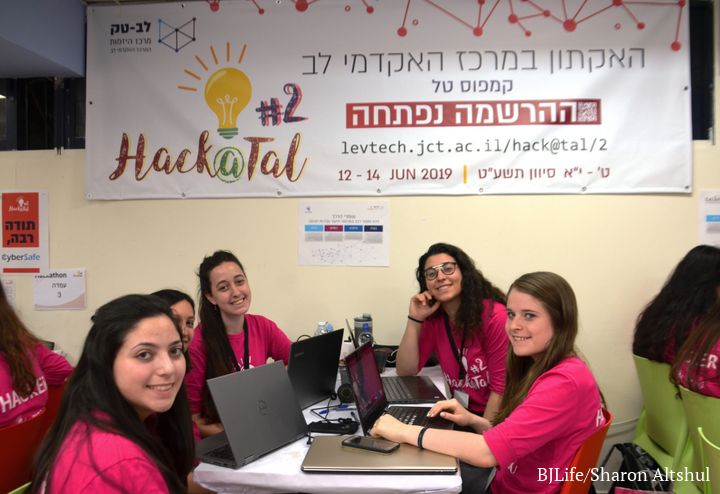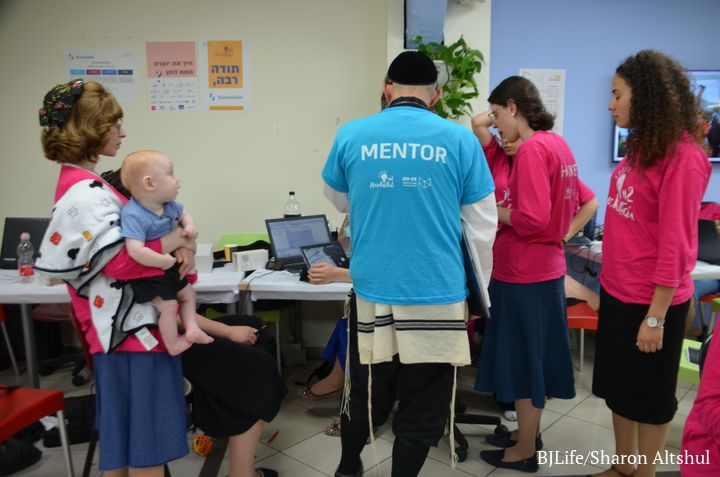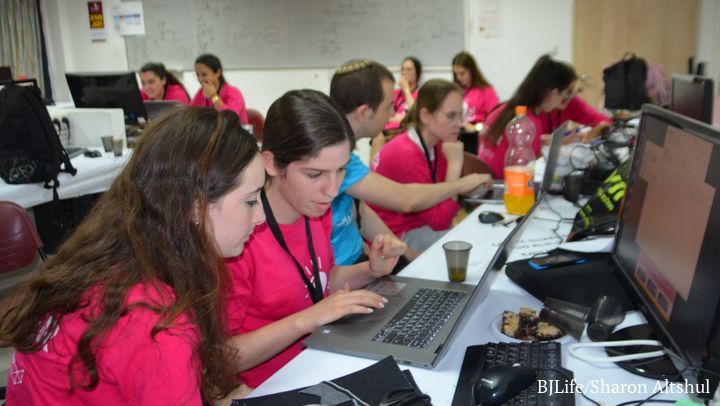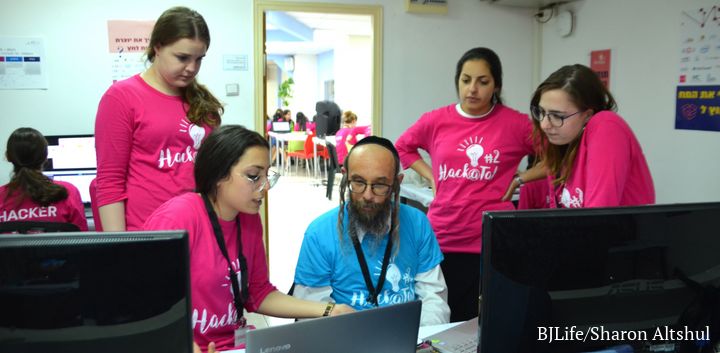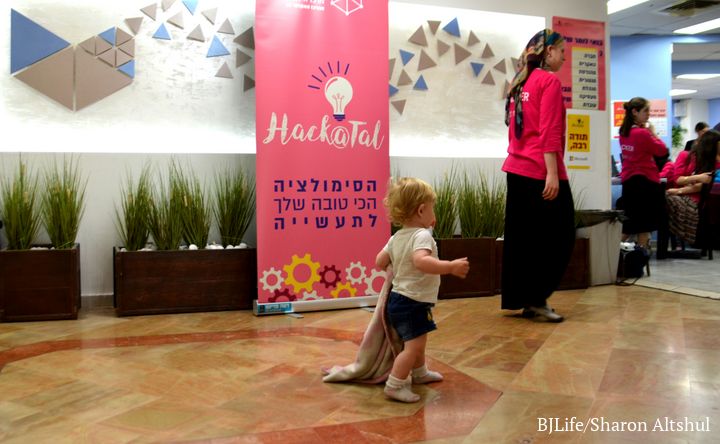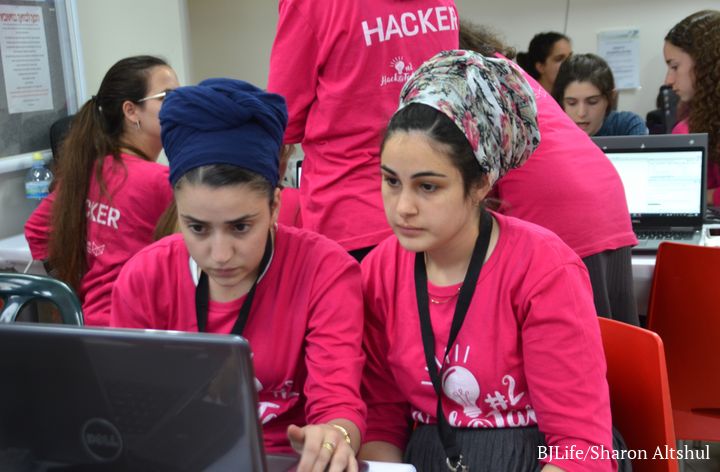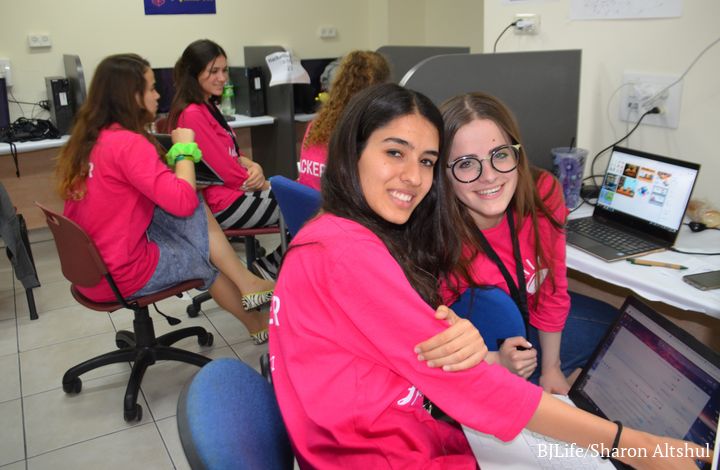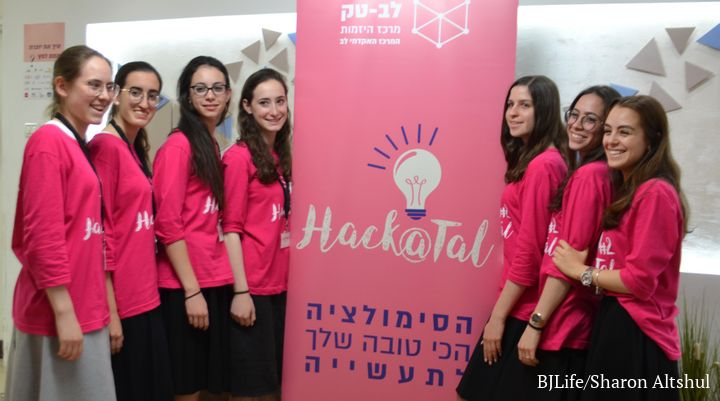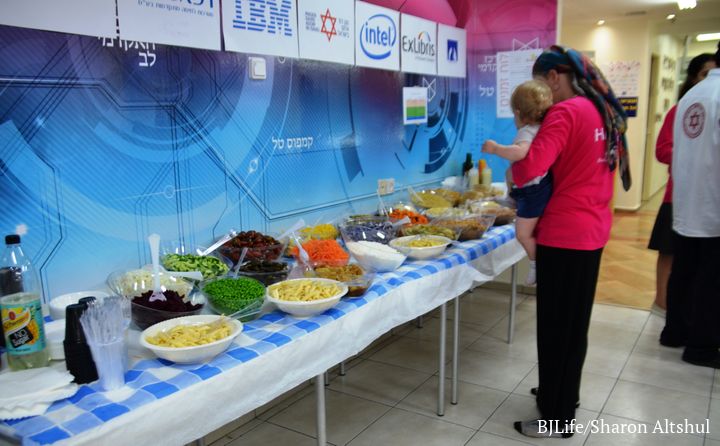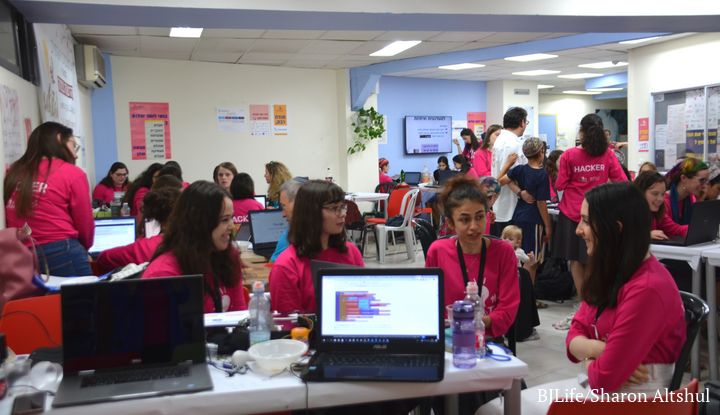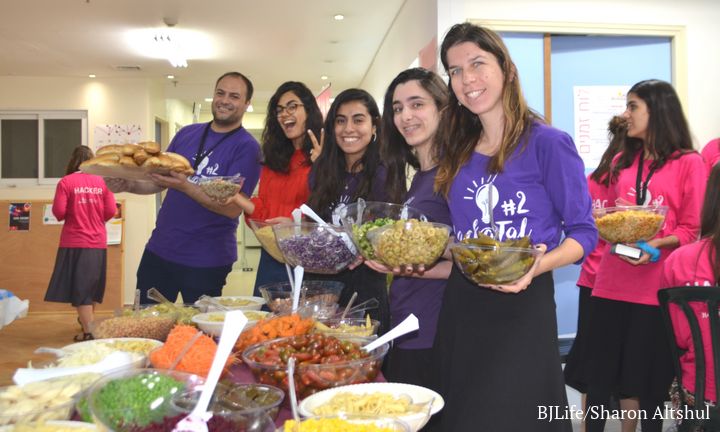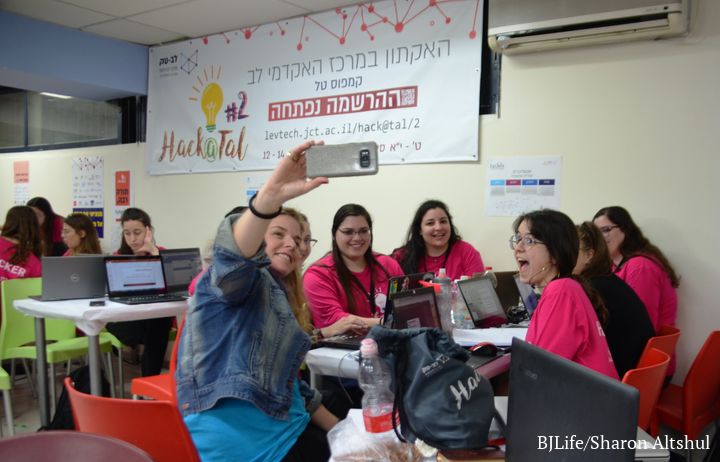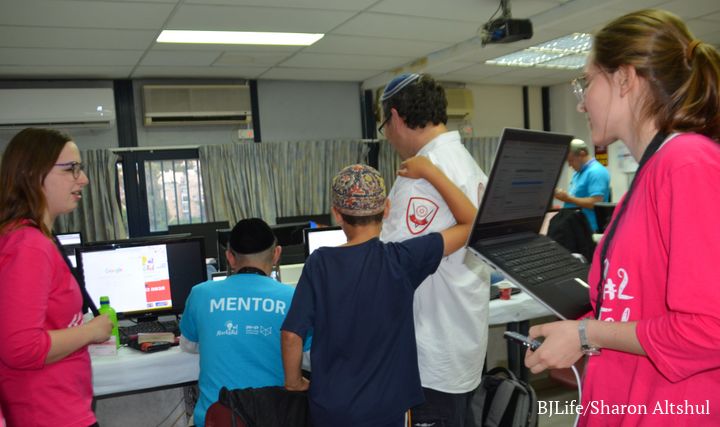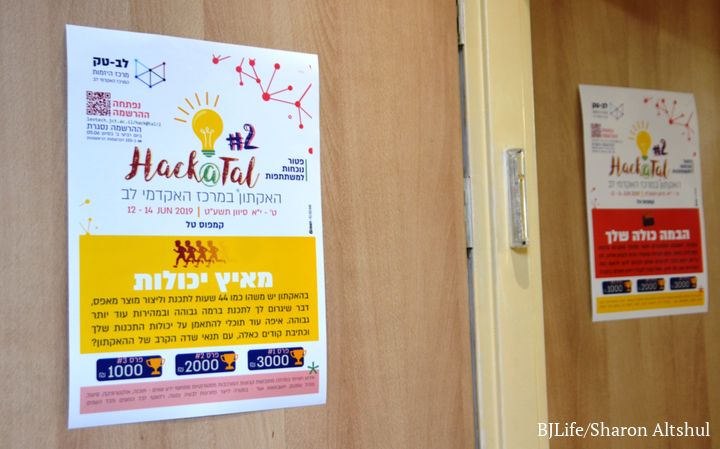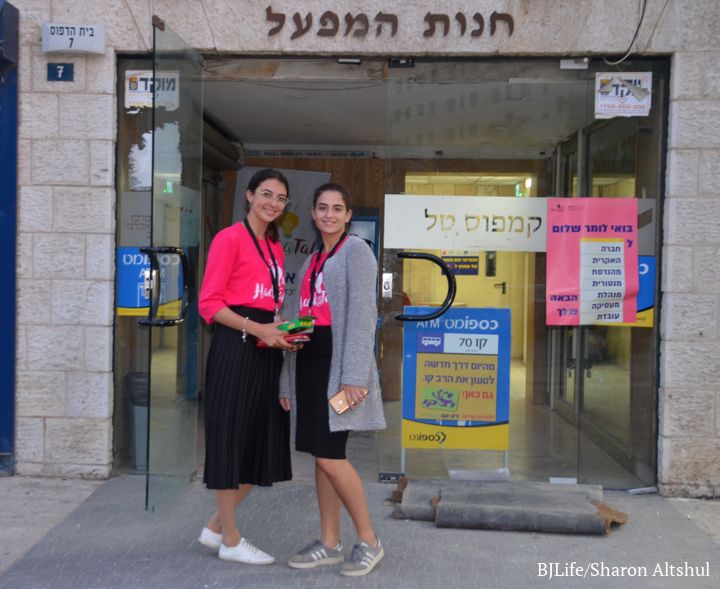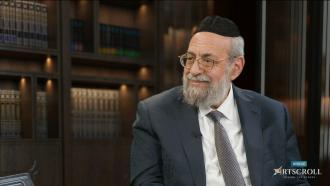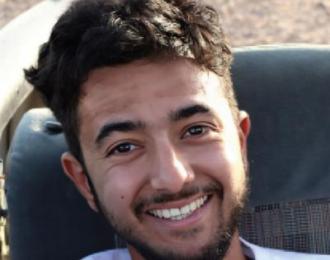Jerusalem, Israel - June 17, 2019 - Beginning in the summer of 1999, "hackathons" have grown to become international events involving thousands of computer programmers and professionals who work in other areas of software development. The goal of a hackathon is to create usable software or hardware and a functioning product or application by the end of a limited time span, often in 72 hours. In the past, many organizations held hackathons over weekends, thus Shabbat was included in these marathon work environment events.
From Wednesday to Friday, June 12-14, in Givat Shaul, at the Jerusalem College of Technology (JCT) Tal Campus Lev Academic Center, more than twenty organizations sponsored a special hackathon called Hack@Tal. Over 100 young women participated in the non-stop volunteer event with the assistance of dozens of volunteer mentors. Though the end of year exams are approaching, these young women, some married and some with their babies, competed on developing solutions to challenges presented by eleven companies and organizations. On-site daycare was provided and a special late hour nursery was provided for the hackers' and their babies.
As Rector Professor Kenneth Hochberg proudly pointed out, the theme this year was, "Take your Brain out of the Box." Tal, established in 1990, is Israel’s first women-only Engineering and Technology College, with a campus serving over 2,000 women studying in various undergraduate and graduate degree programs including Industrial Engineering, Computer Sciences, Bio-Informatics, Accounting, Business Management, and Nursing. JCT trains approximately 20% of all women studying computer science and software engineering in Israel. Programs are offered in English and Hebrew. The Machon Tvunah division which caters to Haredi and Chassidic women had a group participating in Hack@Tal.
Time and efficiency are of utmost importance. Meals were served to the working groups as the participants worked around the clock to meet their goal and deadline. Taking time away from concentration and work progress to chat was not a good idea. However, one young woman took a minute to explain that their challenge was to make a wireless sensor for baby monitoring.
Another challenge was presented by Magen David Adom (MDA). Ambulances are often slowed in traffic. One group explained to BJL how they were working on a sensor system for traffic lights to clear the road of vehicles as an ambulance approaches.
The judges included Galia Kut, Entrepreneur and Investor; Bob Rosenschein, Founder/CEO Accent Software, Answers.com, Curiyo; Yonit Serkin, Managing Director MassChallenge Israel; Aviv Harkov, Partnerships Manager & Deal Flow Coordinator fresh.fund; and Ori Sobovitz, Head of Government Relations and Israeli Partnerships OurCrowd. On Friday they were tasked with selecting the winning projects.
The winning teams for first and third place worked on a wireless oxygen saturation monitor for infants. The challenge was presented by Intel in cooperation with Alyn Children’s Hospital.
Second place went to the team using machine learning/artificial intelligence to find and automatically blur faces of patients in photographs to protect their privacy. The challenge was presented by Melabev, an organization dedicated to assisting Alzheimer’s patients.
Orlee Guttman, Director of Strategic Partnerships, told BJL, "It goes to prove what we’ve thought all along. As soon as you provide women from these communities with the chance to create and use their brains and their skills, they take the opportunity and run with it, above and beyond all expectations."
Guttman added, "We will continue to work hard so that this type of engineering and innovation will continue to come from these women and these communities. The women will continue to receive our support to further develop these products and get them to market."
The hackathon is part of JCT’s new LevTech Entrepreneurship Center, which also includes a pre-accelerator program. Among the sponsors were Intel, IBM, Cyber Safe, and Mass Challenge. Hearing about the Hack@Tal, a group of interested volunteers arrived from Herziliya Microsoft to mentor the women.
Photo esssay includes some of the various groups at work on challenges, with their mentors and very young assistants.

